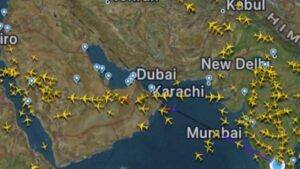
Jakarta, Nov 22: Seeking to bridge trade deficit with Indonesia arising primarily on account of heavy coal and palm oil imports, India is planning to further diversify its export basket with the key Southeast Asian nation by adding more agri products such as potato, onion, apples and grapes.
Speaking to visiting media delegation as part of India-ASEAN media exchange programme, a senior official at Indian embassy here said that the trade deficit with Indonesia is not that large and hence manageable.
“We have been importing quite a substantial volume of coal and palm oil from Indonesia which leads to a trade deficit. In order to bridge this we are trying to diversify into new sectors. We are trying to diversify to agro products. We want to add apples, grapes, chillies, potato and onion among others to our export basket. So, we are trying to bridge the deficit,” he said.
The embassy official said that India and Indonesia are aiming at a total bilateral trade of US$50 billion by 2025.
“In 2018, our Prime Minister (Narendra Modi) came here and we signed more than 30 MoUs. We also signed a comprehensive strategic partnership agreement that elevated our bilateral relations. In 2018 our trade (with Indonesia) was around US$ 20 billion. During this time our PM set a bilateral trade target of US$ 50 billion by 2025,” he said.
He further said that there has been almost 50% growth in trade since then and it has reached nearly US$ 40 billion.
“In 2023, if you see, there is a growth of 50% in bilateral trade and it has reached nearly US$ 40 billion. So, we are very close to achieving the target set by our Prime Minister. Among major items, we import coal and palm oil from Indonesia. We export sugar, rice, heavy equipment, engineering goods, technologies etc to Indonesia. So, our trade basket is quite large with Indonesia,” the official said.
Meanwhile, the media delegation also met the President of Economic Research Institute for ASEAN and East Asia (ERIA), Tetsuya Watanabe.
Watanabe said that as a policy think tank ERIA is keen to expand collaboration with the Indian government and policy-makers.
“India is an economic powerhouse and it has increased its significance economically and politically,” he said.
Under India’s G20 Presidency, ERIA was part of several working groups and participated in various ministerial meetings and summits.







